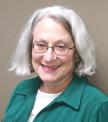
When our children move what do they take with them? What did I take with me from the West Virginia home where I grew up? Wonderful memories of a good childhood free of parent-induced guilt and the belief we should always do our best so we have no regrets. What reminders of home do our children display? More importantly, what moral and spiritual legacy do they carry with them? What actions will they be remembered for in their new communities?
Years ago when our daughter moved to St. Louis and I visited her the first time, her tiny studio apartment made me smile. She attached photos to the refrigerator with magnets, hung a few lovely pictures, and even the plant on the window sill seemed familiar. It felt like home. About five years later, combining SAFEHOME business with pleasure, I visited our oldest son about four weeks after he moved to the D.C. area. The decor of his apartment also reflected our home. With our youngest recently transplanted to Florida, we’re eager to discover what pieces of home he took with him. Additionally, it’s also an absolute joy to see our children carry with them the Jewish values they learned at home and in our community as they live their lives in new cities.
When our daughter married recently, I wondered if I’d shared enough with her about SAFEHOME, and healthy relationships. Certainly she knows where I work, and what services our agency provides in the metro area, but had I told her enough? These thoughts never occurred to me when our son married. Will I regret this omission?
I try to live my life without regret … but I do regret not connecting with a person I met when I first entered volunteer management. Ann Jacobs, of blessed memory, died recently shortly after her 80th birthday. We first met after her stroke and when I began my volunteer management career at Mid America Rehabilitation Hospital (MARH). Ann was a professional, and when she learned, after a therapy session for her stroke, that MARH had a volunteer program, she jumped at the opportunity to get involved. After all, just because one physical side of her didn’t function well, her mind worked beautifully and she offered some solid ideas about improving the business office’s communication process. She exemplified the definition of a professional volunteer, had a wicked sense of humor and contributed so much to the hospital.
Why am I writing this? It’s because I so regret not connecting with her before her birthday to extend good wishes. It was on my “to do” list, as was sending her a card.
Writing these types of notes can make a difference in one’s life. For example, a former area rabbi recently sent me a note: “I’ve been thinking about your work at SAFEHOME and how much I learned from you and the resources you provided me … I want to say thank you. Because of your advocacy and the educational programs you provided, I learned enough to at least help me know who to call and what questions to ask when I’m faced with a person living in an abusive relationship.”
It amazed and touched me that this rabbi took time to write these words. I share this now because I want no regrets concerning what defines a healthy and unhealthy relationship. An unhealthy relationship is not simply one where someone is physically hurt. When one endures constant yelling, demeaning comments, threatening remarks … that also wears people down, diminishes self-esteem and may also eventually lead to physical abuse.
It is my vocation and avocation to inform people that SAFEHOME is a resource for anyone with concerns regarding questionable relationships. As you celebrate Hanukkah with your loved ones, think about how fortunate you are to live in a home that’s peaceful, functional, loving and caring.
While you are watching your menorah burn, you might think about relationships. If you are looking at a traditional menorah, you’ll note that there are four candles on each side. That number four is important, as domestic abuse affects one in four women. Think if one of those candles burns out too quickly … there’s a void.
If you think you know someone whose home is less than peaceful, less than functional, or loving, I encourage you to ask them if they’re OK. Are they safe at home? Do they know about resources available right in our community? SAFEHOME’s 24 hour hotline is 913-262-2868.
Please, don’t regret that you missed an opportunity.
Susan Lebovitz is SAFEHOME’s manager of volunteers. She is also the Jewish Outreach Program coordinator funded by the Flo Harris Foundation.